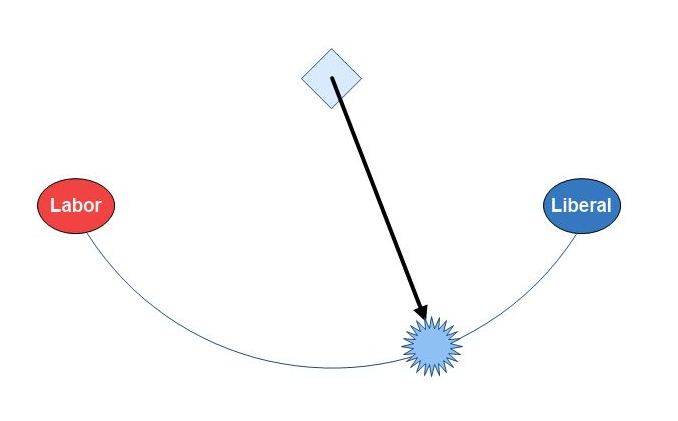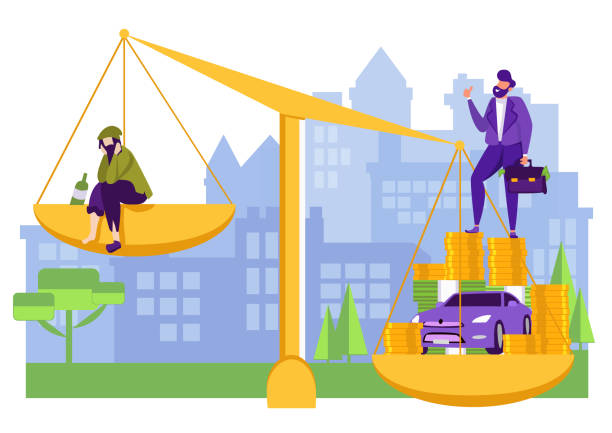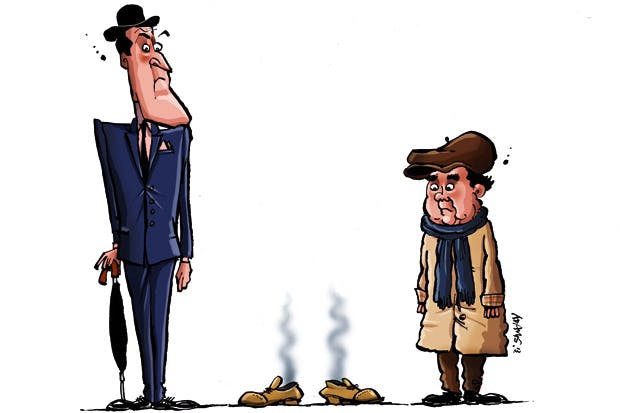Roll the roulette wheel! The time has come again to elect the government. Red or black? Place your chips and gamble away your future.
What is important? “The economy.” shouts one side. “Health and education.” say the other. Who to believe? I have a problem. Nobody has mentioned what is important to me.
I will get to that.

Voters talk about what is important in government. What they are really saying is what is of benefit to me personally. More accurately, what will put most dollars in my wallet or purse? In this post, I am trying to focus on what is important for our society rather than good for the individual.
In Australia, as in most western countries, we have the usual political spectrum under the broad headings of left and right. Socialists versus conservatives. In Australia, the Labor Party v the Liberal Party. Hanging around are a couple of special interest groups and a few who are barely members of the human race.
Each party has a narrative. For the conservatives it goes something like this.
“We believe in resisting too much change. Change brings disruption and society starts to break down. We want to preserve the columns that hold up the roof over our country. Religion, Business, Industry, Values. We do this by controlling the economy so Business can thrive. The benefits will trickle down to the masses. Things that challenge the Christian religious view are either not tolerated or discouraged. Values around abortion, gay sex, Islam must never be degraded. We have survived as a white Anglo-Saxon tribe for a few hundred years. Let’s not change it.
People have the opportunity to be anything in this country. All they have to do is work hard and they will be rewarded. They don’t need the government to get in their way. The weak will fail; the strong will prosper. If you fail, it is your fault, and you need to pick yourself up and try again. Competition in every area is good. If you win, you should be handsomely rewarded.
Government is a necessary activity but it should be in the background.”
For the socialist side, their narrative goes like this.
“All people are not born equal. There are rich families and poor families. There are smart people, and not so smart people. There are healthy and sick. People born here and people born in other countries. We must provide for those who have obstacles in their life; Those who do not need so much help contribute to the less fortunate.
People have an inherent right to certain things. Education, health services, a roof over their heads, protection from others, a job, and a chance to contribute to society to the maximum they can.
In order to do this, we have to spend more on services. To have the money to spend, we have to have higher taxes. To be able to avoid tax evasion, we need to apply more rules and regulations to both business and individuals.
Government is a necessary activity but it should be in the foreground.
We have had six years of conservatism so it is probably time for the pendulum to swing the other way. Too much “hands-off” has made people aware that government needs to be more “hands-on”. Another six years, the pendulum might swing the other way.

Here are a couple of examples of conservative government “hands-off”.
PM Morrison voted 26 times against a Royal Commission on Banking. No need. Let the banks rule themselves. Hands-off. Of course, when it did happen, the banks were shaken to the core. Scandals everywhere. Dead people charged fees. Clients ripped off. Only one CEO went and the rest said “Sorry”.
Much of the problem could be traced to the massive cuts to regulatory bodies under the conservative government. Banks had little oversight so they competed with one another gradually ratcheting up the rorts. Now the PM says he was shocked. What did he expect if he just let banks do what they wanted with no oversight?
Next was the conservative resistance to gay marriage. Polls showed overwhelming support among the public. The Labor party supported it. Half the Liberal party supported it, but for the right of the Liberals, it was much too unsettling. Too much change.

In the end, we wasted millions on a plebiscite that confirmed what every opinion poll had been telling us. The public supported it. Still not enough. The Liberals were forced into a legislative vote but it was a non-binding vote. In other words, the plebiscite did not compel the Liberal members to vote for the legislation. It was a conscience vote. So why hold the plebiscite and waste millions? It was all about resisting change to Christian religious views. Shakes the column and the roof may fall in.
I could go on, but you see the problem with “hands off”. Time stands still and business rips off the majority. You might think that “hands-on” is the obvious solution. That also has problems if it goes too far.
People become welfare dependent. We have all heard the stories of people living on the dole for years, of people rorting the system, of businesses choking in red tape. Too much can strangle innovation and progress.
I spoke to a long time political journalist – Max Walsh – many years ago and he said that democracy was slowly grinding to a halt. We were passing so many laws and regulations that both people and business could only ever move in a very small space. Freedom to grow – grow personally, or grow a business – would be stifled.
We had a long period of conservative government under John Howard from 1996 to 2007. Then a short disruptive period of Labor from 2007 to 2013 where we had 3 Prime Ministers. We have since had three Liberal Prime Ministers from 2013 to 2019.
Since 1996 we have had 17 years of conservative government. We have only had 6 years of Labor and in that period we had an internal power struggle that saw Kevin Rudd replaced by Julia Gillard replaced by Kevin Rudd again. Hardly an environment to make much change to the country.
All that conservative government has changed the balance in the country. Business has been given more scope to expand. Taxes have been cut, and regulation eased. Regulatory bodies such as Australian Security Investment Commission (ASIC), Australian Prudential Regulatory Authority (APRA), the Australian Tax Office (ATO) and the Reserve Bank (RBA) have been subject to staff and budget cuts. Enforcement of laws relating to white-collar crime is next to nothing. The number of senior executives sent to jail could be counted on one hand. As someone said:
“You have more chance of going to jail if you are charged with drink driving than with being a negligent director presiding over a multi-million dollar fraud.”
Since the GFC, most companies have recovered and are making profits. Not the sort of profits they made before maybe, but still profitable. Statistics show us that those profits are going into dividends rather than paying workers more.
Wages in most parts of the world are flat. In Australia 2.3% for 2018. Inflation was 1.8% so real wage growth was 0.5%. The Wage Price Index (WPI) grew at an annual average of 2.2 per cent in the five years to December 2018, which compares with average annual growth of 3.3 per cent in the previous five years to December 2013. Average annual growth in real wages in the five years to November 2018 was significantly less than the average recorded in the previous five years to November 2013—0.5 per cent per annum compared with 1.8 per cent per annum.
Productivity and wage growth usually go hand in hand but while we have seen productivity improvements in Australia, wages are not following.
Couple wage stagnation with high house prices and you have a declining disposable income. People are in one sense, poorer. They no longer have the money to spend on what they might call luxuries. Those may be as simple as a night out at a restaurant or more extensive like a trip overseas.

Meanwhile, wage growth at the top end of town has boomed. Australia Institute research in the aftermath of the financial crisis documented how CEO remuneration in Australia had increased from 15 times average earnings in 1993 to 250 times in 2007. The upward trend has continued. In 2018 a survey found Australian top executive pay was up 12% and bonuses up 18% for the year. So, the rich are getting richer and the poor are getting poorer.
You might remember earlier I said my major concern was not getting a mention. Well, here it is. My major concern is the shrinking of the middle class. A lot of middle-class families are getting poorer, and a very small number are getting richer. If we keep on this track, we will end up with a big lower class, small middle class and even smaller upper class in terms of wealth. It may take 10 or 20 years before the major impact is felt, but we are on the path.

Why is that a concern? Think about all the countries where a revolution of some sort happened. Almost every event was due to the absence of a middle class. The workers rose up and overthrew the elite. You can call the motive envy or suppression or perceived inequality but in the end, society was disrupted.
But it doesn’t have to be a revolution. It can be social instability in many shapes. Perhaps it is some form of action against the government and institutions. Maybe it is resistance against working conditions. Could be just plain angry vandalism. Without a middle class which provides a bridge between poor and rich, the social structure caves in.
Left and right, the economy, health and education funding are all things that influence the social structure, but the problem is that we look at them in isolation. We should be looking at what impact each will have on society. How combined, they will change society. It is no secret that my leanings are more to the left than right, but the reason is that I believe we are not all born equal, and those who can help have an obligation to help.

Is it about who can die with the most money? Is a man or woman with 10 billion happier than one with 5 billion? I doubt it. There is a point where those with more should say “This is enough. I will use any more to help others”. If Bill Gates can do it why can’t others?
If the wealthy can help the poor, we retain the middle class. We grow the middle class. Sure there will be those in the middle who aspire to climb the tree but that is healthy. It is when the tree starts to seem beyond the reach of the poor because the bridge is shrinking that trouble is on the horizon.
The vast majority vote on what is good for them. I have no idea how you explain what is good for you may be detrimental to society. In a world defined as “I want it now” perhaps that is impossible. Not talking about it will not change anything. Talking about it may shift one or two who might also start talking about it.
It may be idealistic, but maybe, we should be more concerned about retaining and growing the middle class in this election. Taking a purely selfish view, if the middle class is squeezed, ultimately we will all face a world of personal pain as society collapses.